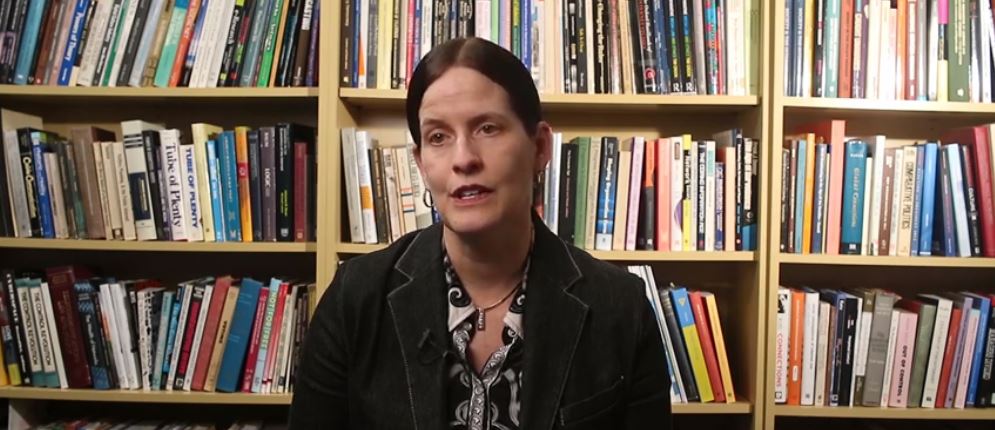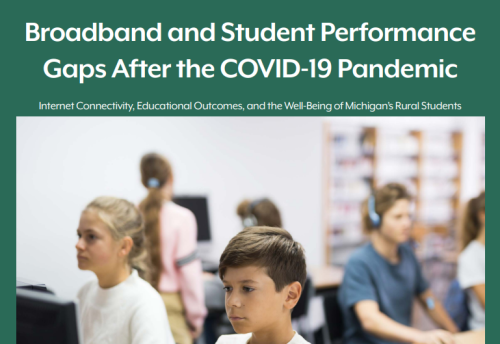
Dr. Laura DeNardis studies the invisible. In her new book, The Internet in Everything: Freedom and Governance in the Age of Smart Devices, DeNardis lifts the veil of the Internet to make visible the arrangements of embedded power across cyber-physical systems. At a recent talk hosted by the MSU Quello Center in the Department of Media & Information in the College of Communication Arts & Sciences, DeNardis outlined the importance of Internet governance, and the misperceptions surrounding the term. “The term Internet governance is actually an oxymoron,” she said, adding “it’s not just about governments …. with the Internet, almost all of the infrastructure is run and owned by the private sector.”
See her full talk here.
DeNardis is globally recognized as one of the most read scholars in Internet governance. She has written six books including: The Global War for Internet Governance; Opening Standards: The Global Politics of Interoperability;and Protocol Politics: The Globalization of Internet Governance. She also serves as Faculty Director of the Internet Governance Lab and is a tenured Professor in the School of Communication at American University in Washington, DC.
Her new book addresses the fact that more things, than people, are now connected on the Internet. In her Quello talk, DeNardis described how this is a major transformation, considering the Internet is no longer just a communication system, rather it is a control network in which battles over control of the infrastructure serve as a proxy for political power. At the same time, the “Internet of Things,” connects everything from industrial energy sensors to cardiac monitors to home appliances, thereby elevating the significance of the power structure behind the Internet. As such, she warns “today, an outage in cyberspace is no longer about loss of communication but about loss of life.”
While human life may depend on the stability of the Internet, DeNardis points out that the Internet has a life of its own. In her talk, DeNardis explained as long as electricity exists, the Internet lives. To illustrate how autonomous the Internet has become, she asks the question: What would the Internet being doing if humans suddenly left the earth? A lot would be happening, according to DeNardis. For example, automatic mortgage payments would be paid, home thermometers would adjust home systems, robots in an Amazon fulfillment center would be fulfilling orders — until electricity stopped flowing. In fact, “everything that’s important to us in society, depends on the stability and security of the Internet,” said DeNardis.
Armed with an Engineering Science degree from Dartmouth College, an MEng from Cornell University, a PhD in Science and Technology Studies from Virginia Tech, and a postdoctoral fellowship from Yale Law School, DeNardis has spent her career examining how these hidden technical governance arrangements will become the constitution of our future. While this system of governance is invisible to most, the implications of infrastructure and design decisions impact everyone. She remains diligent in her quest to make these arrangements of power visible because, in her view, Internet governance issues are essentially issues of human rights. See her Quello interview here.



